Photos courtesy of the Medici Fraternity
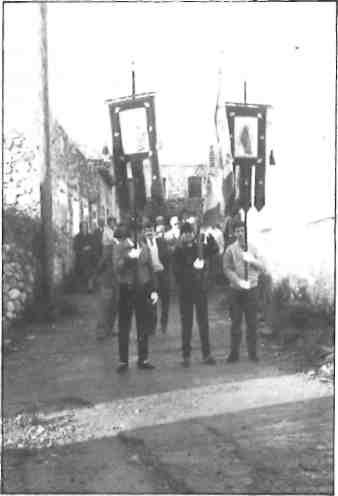
Five centuries ago (and fourteen years more to be exact) a handsome young woman was ascending a steep slope to the village of Vitylo. Her name was Anthi. She was, as they put it in those days, great with child. And she was recently widowed, too. On the way up to the village she paused, seeing an unfinished chapel, and perhaps she made her calculations, for Anthi was an intelligent as well as a very determined girl. And maybe then she turned her eyes westward just as we do today, for it is said that Vitylo provides a sunset view which is the finest in all Mani.
In the chronicles of Greek tradition there are many records that seem to hover between legend and reality, and it is difficult to separate them out sometimes because there is so much of both. In any case, the tradition is always quite real in itself, and often it survives down even into our own days.
One of these traditions is enshrined in a Christmas ritual which has been performed without interruption for half a millennium and which links, in very unlikely fashion, the brilliant palaces and villas of Tuscany with the rough-and-tumble cottages of Mani.
This is the way it goes. In the 14th century a member of the Medici when it was still an ordinary, though solid, Florentine family found himself in Athens during the period of the Catalan occupation. At this time the great Florentine banking family of Acciaiuoli was already well established in Greece and the Catalans up their necks in debt to it, but there was yet time still before the Acciaiuolis became Dukes of Athens.
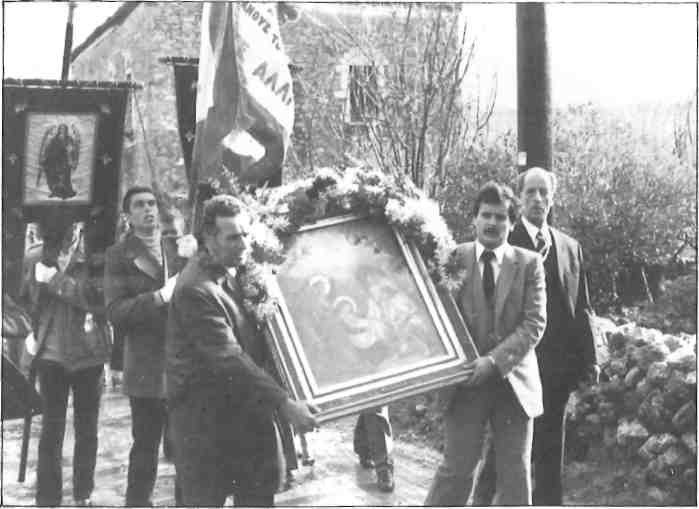
Piero (or it may have been Pietro) de Medici hellenized his name, as it was the custom to do, to Yiatros (the Greek equivalent of medici or doctor), and his descendants have often used both names, the Iatriani and the Mentitzi. Later, a branch of this family settled in Nauplia, then known as Napoli di Romania, when the port and the citadel were part of the great commercial empire of the Venetian Republic.
In 1537 we find a Greek commercial contract signed by one “Piero de Medici de Atenes, Bialus et Colonel Capo de Argos at de Napoli de Roma”. The title Bialus, or bailie, was granted by the Serenissima to her representatives in the Levant.
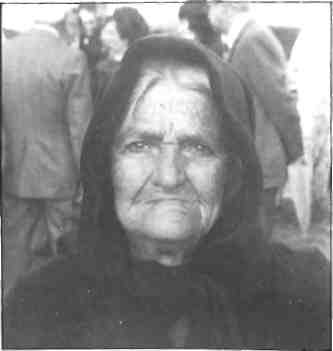
Three years later, Venice lost her last possessions on the Greek Mainland, Nauplia and Monemvasia, to the Turks, and shortly thereafter Piero’s descendants again split. Those who stayed on in Nauplia changed their surname now to Iatropoulos, with the characteristic suffix of most of the Peloponnese. The other branch came to Mani, and adapting its name to local usage, thus became Iatrakos.
Yet another Piero (or again Pietro is a possibility) appears out of the past at Kitta on the west coast of the deep Mani where hospitality is held sacred. Any stranger arriving in good faith there was received with honor and the consideration due a person of importance. Piero was taken in by the master of the district, Kontostavlos and he, impressed by his guest’s background, education and noble bearing, after awhile proposed that young Medici wed his daughter, the lovelyAnthi. And that’s exactly what happened.
But as so often in life (and especially in Greece), things turned out quite differently than expected. Piero’s knowledge of military affairs, his qualities of leadership, his ability to make men work with rather than against each other, made a deep impression on the proud but factious Maniots. All of this provoked the black jealousy of Piero’s father-in-law who had him murdered without the slightest hesitation.
Now Anthi, though pregnant, left her father’s house and her village, too, and sought out another place to go on living in – though, of course, in Mani. So that’s how she came to Vitylo.
Due to its geographical remoteness, the poverty of its land and the warlike spirit of its inhabitants, Mani was a place the Turks thought it wise to leave alone, and always regretted it when they didn’t. The village of Vitylo was especially daunting and had become a stronghold of resistance. Perched 300 metres high on a western spur of Mount Taygetus which plunges into the sea, Vitylo faces an expanse of endless blue and enjoys one of the most spectacular locations in this wild area. Arid and poor, except for some scraggy olive groves and wild fig trees, Vitylo found an alternate way to survival in piracy.
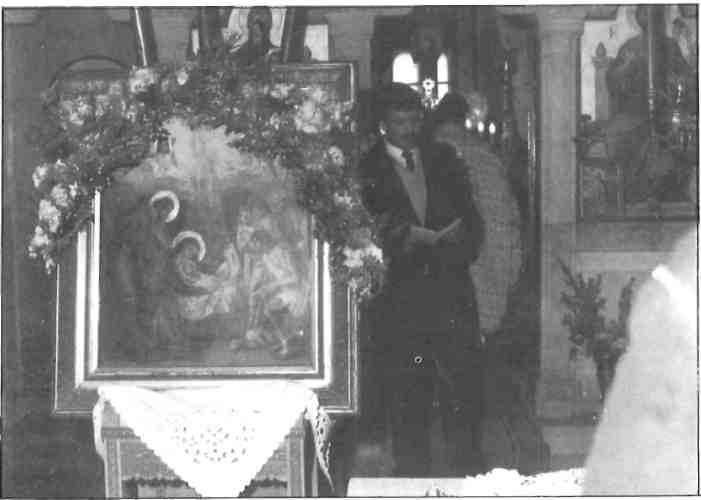
Even three centuries after Anthi came to Vitylo, Choiseul Gouffier, Louis XVI’s Ambassador to Constantinople wrote of the area on the eve of the French Revolution, “There is a tribe of about two thousand souls, the Maniots, who make their living through piracy and in the trade of hostages.” The latter involved the exchange of Chrisian and Turkish prisoners.
Nearly a century later another French writer, Jules Verne, in his novel The Pirates was still referring to freebooting in Mani as the main source of income for these poor people. Verne gives interesting details as to how they went about this profitable occupation. Taking advantage of the treacherous coastline, the inhabitants of Vitylo, on dark and stormy nights, would tie a lantern to the horns of a billy goat which they would let free to browse on the rocky escarpments just by the sea. A captain might easily mistake this lantern for a lighthouse and thus misled, would break up his ship against the rocks and the Maniots would seize its contents, and dispatch or ransom its crew. In this way Vitylo earned the sobriquet “Little Algiers”.
But Vitylo was already launched on this enterprising trade four hundred years earlier when Anthi first came to the village and was, as we first found her, contemplating the unfinished chapel and looking (perhaps) at the view. When Anthi heard that the incomplete state of the Kagassariani family which owned it, she proposed finished it and becoming co-owner. (Being a sensible girl, she had certainly not left home penniless.) Besides, she learned, it was the custom that everyone of social standing had his or her own church. So, Anthi decided to stay on in Vitylo and there gave birth to her child. She completed the church and earned the right to have a Mass of her own, and the day she chose for it was that of the birth of our Lord.
Anthi has given birth to a boy and he, too, was called Piero because in Vitylo it is considered proper to name a son after his father. She also seems to have had a good deal more property than just half-a-church and her son grew up to be a prominent citizen.
But as Piero grew, the wish to avenge of his father was ever-present and many would say it was his duty.
According to custom and tradition more strict and binding than any written law, no member of a hostile family was allowed to enter the village of Vitylo. So Piero, searching for a provocative excuse, seized an old woman who was a member of the Kontostavlos family one day. She was travelling through on her way to Kalamata and he sent her packing back to Kitta. Old Kontostavlos considered this a great insult and in a message challenged his grandson to a duel. What the outcome might have been is hard to say because a faithful servant of Anthi killed the old man before the duel took place. Prevented from satisfying his desire for revenge, Piero meant to punish the servant but Anthi intervened and said it was the will of God. In fact, she adopted the servant, whose name was Bazinas, and he became a member of the family.
Many of the events related above may lie uncertainly between legend and reality, but the important thing is that in the five centuries since Anthi’s arrival in Vitylo in 1475, the Christmas Mass in her honor is still celebrated by her descendants. No doubt in the course of all these years, many things have changed, but the essence of the ritual and the passing on of the secret from the old to the young remains the same.
In times past, very early on Christmas morning, a group of men initiated into the secret went around the village, calling out “Brothers, lay down your guns!”. Today, of course, a calmer atmosphere prevails in keeping with our times, but the ritual of the closely guarded secret keeps its ancient, mystic aura which affects everyone concerned.
Preparations for the ritual start several days before. Special food and sweets are prepared and the Medici descendants and their friends – even those who live in Athens – “go down” to Vitylo.
Every year a new leader is appointed and each time he belongs to a different boulouki, or sept, of the seven that make up the Medici clan.
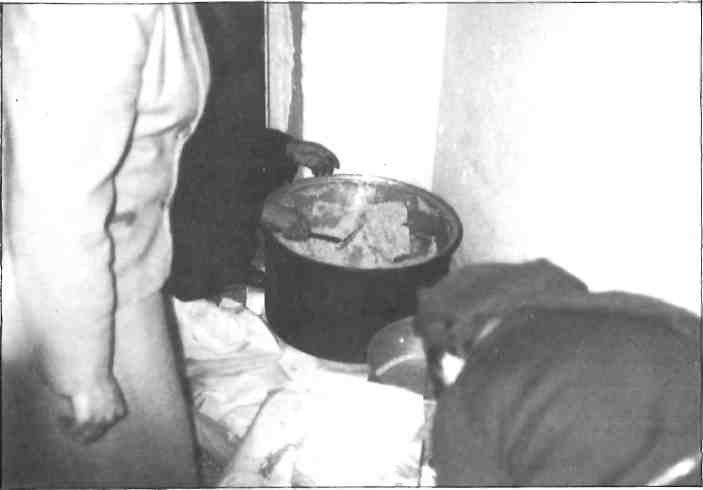
So, in rotation, the leader, know as the Brother, hands over the sacred objects to the new leader who takes charge of them and ensures their safekeeping until the next Christmas when it is time to hand them on.
“Today we know who all the Brothers are going to be until the year 2000,” says Dimitris Papadeas, a young and devoted member of the group.
From the house of the Brother of the year, the banners and the Medici flag bearing the motto “Love Each Other” are respectfully carried to the Church of the Taxiarchis, or Archangel. It is in the center of the village and belongs to the Medicis.
It should be noted that generations ago the Medici clan only inhabited the lower part of the village, and though now they live here and there, the ritual is still localized to the lower quarter, called Kato Mahalas.
The Christmas Mass is a requiem conducted in the memory of Anthi and her son Piero. The tray with the kollyva (boiled wheat with raisins, almonds, pomegranate seeds and sugar traditionally served at memorial services) bears the initials “A” and “P”. Today, the Mass is open to everyone but only a member of the clan delivers the eulogy. After the service, the procession is joined by the icon of the Virgin and Child Worshipped by the Shepherds, decorated with fresh flowers, carried only by young men and boys of the clan and returns to the house of the Brother where traditional sweets are offered.
At noon, a ceremonial lunch is held in the municipal hall. A special broth made from wheat called hondros is served with roast pork and potatoes, chicken and macaroni, plenty of myzithra and a salty goat cheese. Participants bring bottles of wine which everyone shares at common tables.
Years ago, when the ritual was more strictly observed, only Medici men ate and drank and only Medici women served, but without participating. Today everyone, men and women, serve and eat together -except the male Medici descendants themselves who sit separately in an adjoining room.
After the meal, visitors and villagers begin to dance and sing. But the Medici men in the next room, with its windows tightly shut and its curtains closely drawn and its door guarded by the youths who will be initiated, share the mystery of the secret. They number about thirty-five, five members from each of the clan’s septs.
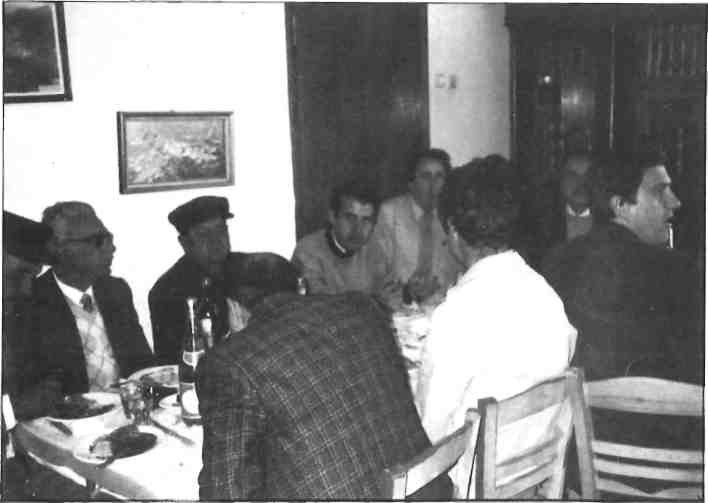
“At that moment we are all equal,” a Medici man told me. “There is no distinction of social rank or wealth or education or age. The year I was initiated, the Brother was an illiterate shepherd. But from the moment his mouth opened, his eyes shone so brightly and he spoke with such intensity that I was amazed.”
Whatever the alterations due to the passage of time and the impositions of modern society, the most sacred moments of the mystery remain, it is devoutly believed, unchanged.
Dimitris Yiannakakos-Razelos, President of the Medici Fraternity, speaks with great respect and admiration for “our little grandmother”, as they call the founder, Anthi.
He believes that more should be known of this ritual, surely unique, not for its notoriety but for its truths, and its ability to penetrate deeply into the consciousness of the young. The Fraternity has already bought land in Vitylo where it will erect its own building. He wants more female response for fundraising and an annual dance.
“The role of women is very important,” he concludes.
“Women often organize things better than we do.”
A tradition, kept for five centuries, has at its heart a secret, annually shared, by ‘seven-sealed lips’ which remains inviolate.
Yet the Mass which commemorates this mystery, held in memory of events born of violence and vendetta, of hatred and murder, on Christmas Day in the spirit of Christ’s last commandment “That we love one another” is a message which deserves to be carried on forever.







